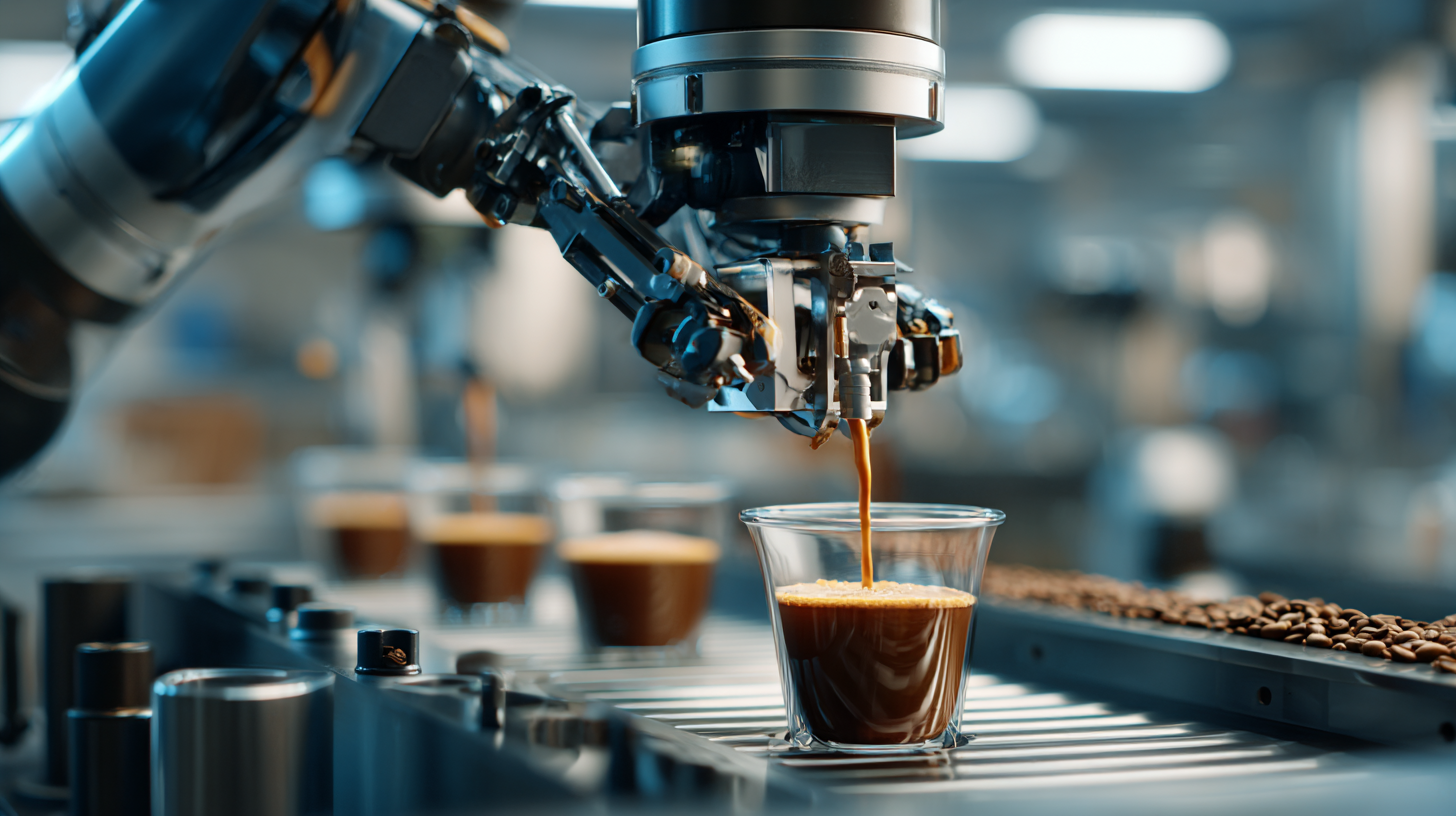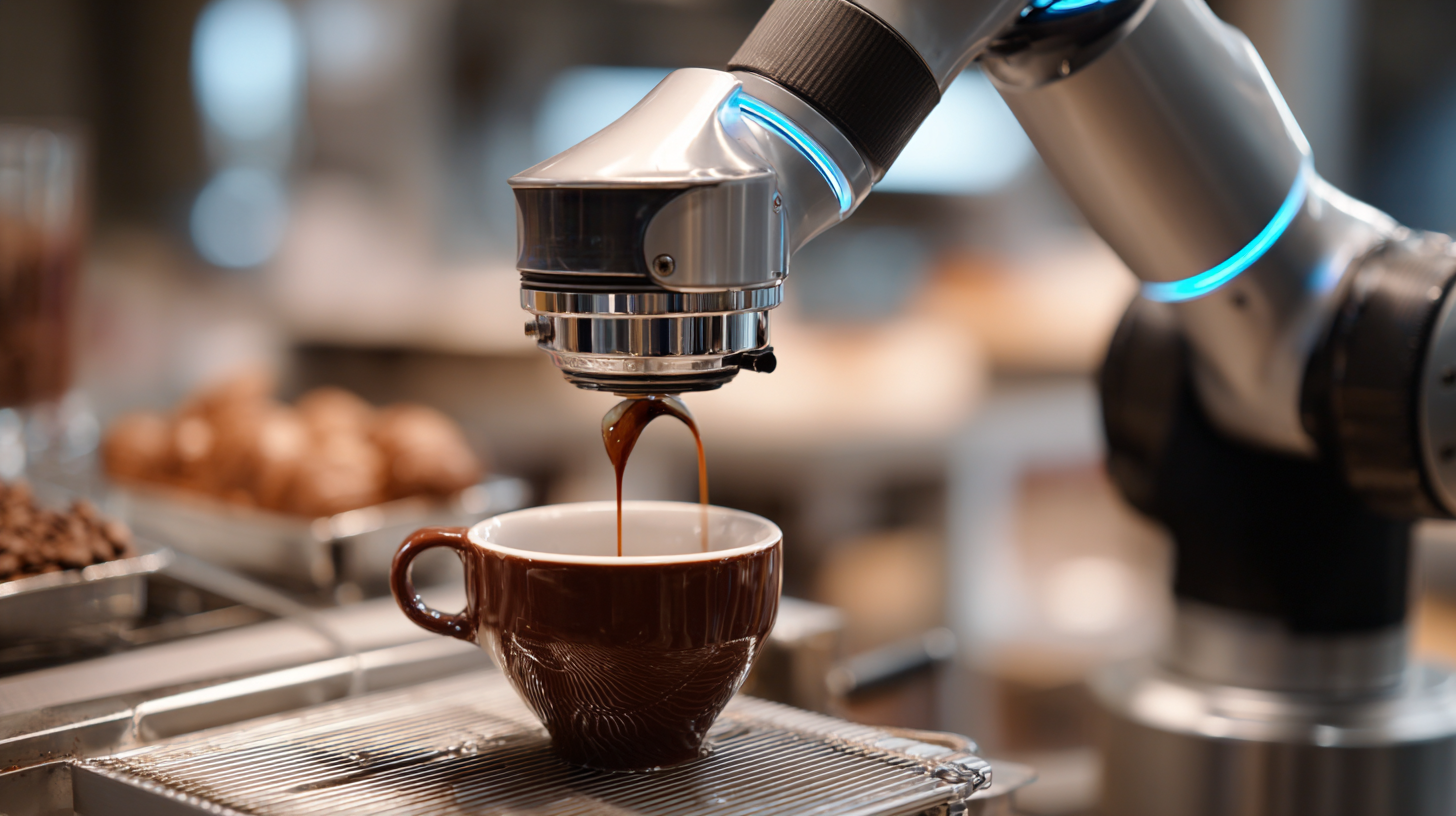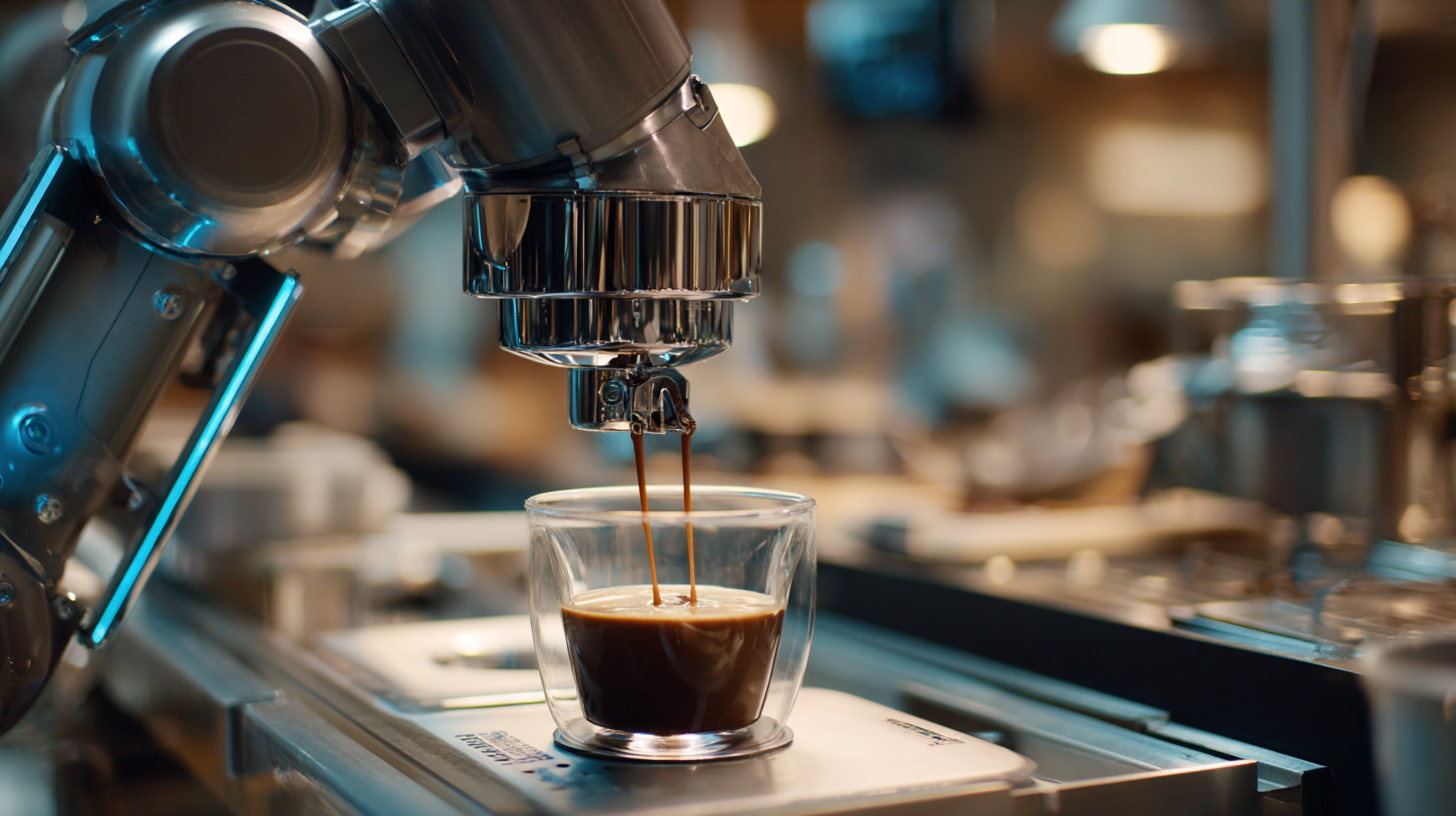Revolutionizing Your Morning Brew: How Coffee Robots Are Transforming the Beverage Industry
In recent years, the beverage industry has witnessed a groundbreaking transformation, particularly in the realm of coffee brewing. The rise of the "Coffee Robot" symbolizes this shift, as technological advancements in automation and artificial intelligence are seamlessly integrating with our daily routines. According to a report by the International Coffee Organization, global coffee consumption reached an all-time high of 167.6 million 60-kilogram bags in 2022, underlining the demand for efficient coffee solutions amidst a growing market. As consumers increasingly seek convenience without compromising quality, the emergence of coffee robots is changing the landscape of coffee preparation.
Coffee industry expert Dr. Emily Lucent, a renowned authority on automation in food and beverage sectors, emphasizes this evolution by stating, “Coffee Robots are not just about making coffee; they represent a new era of personalization and efficiency in beverage service.” This sentiment captures the essence of how these innovative machines are elevating the coffee experience at both cafés and households alike. The interactive capabilities of Coffee Robots allow for customizable, barista-level drinks at the push of a button, making coffee both a personal and a technology-driven experience. As we delve into the nuances of how coffee robots are influencing consumer behavior and industry standards, it becomes evident that this technological revolution is set to redefine the very nature of our morning brew.

Emergence of Coffee Robots in the Beverage Market
The emergence of coffee robots in the beverage market marks a significant shift towards automation in café operations. At recent industry events, such as the National Restaurant Association Show and the 137th Canton Fair, innovative automated beverage solutions showcased their potential to alleviate labor shortages. From robot baristas crafting espresso to smart drink dispensers serving customized beverages, technology is transforming not just the way coffee is made but also how it is served to customers. The increasing integration of these high-tech solutions reflects a changing landscape in which efficiency and consistency are paramount.
As the robotics market expands, with projections indicating substantial growth over the coming years, coffee automation is poised to become a defining trend in the industry. Companies are investing in advanced robotic systems that not only enhance productivity but also elevate customer experience. The growing interest in collaborative robots in manufacturing parallels the rise of coffee robots in the beverage sector, pointing to broader acceptance of automation. With AI capabilities at the forefront, these innovations offer a glimpse into a future where robotic efficiency meets the art of coffee-making, ultimately revolutionizing consumers' morning brews.
Innovative Technologies Driving Coffee Automation
The beverage industry is witnessing a technological renaissance as innovative coffee automation technologies are reshaping how we enjoy our morning brew. From robotic baristas to smart brewing systems, advancements in automation are enhancing efficiency and consistency in coffee preparation. These technologies not only streamline the brewing process but also allow for personalized experiences. Coffee robots can adjust brewing parameters such as temperature and extraction time, catering to individual preferences and ensuring a perfect cup every time.
Furthermore, the integration of artificial intelligence and machine learning within coffee automation systems is pushing the boundaries of flavor and aroma profiling. With real-time data analysis, these systems can learn from user feedback and optimize brewing methods accordingly. This level of precision not only caters to the discerning palate of coffee aficionados but also increases productivity for cafes and restaurants, enabling them to serve high-quality beverages at unprecedented speeds. As these innovative technologies continue to evolve, they promise to elevate the coffee experience, making it more delightful and accessible for everyone.
Benefits of Automated Brewing Systems for Consumers and Businesses
The beverage industry is currently witnessing a dynamic shift with the rise of automated brewing systems, particularly in the coffee sector. These innovations promise significant benefits for both consumers and businesses. Forecasts indicate that the smart coffee makers market is poised for exponential growth, projected to increase from USD 396.4 million in 2023 to USD 1.841 billion by 2033, with a remarkable compound annual growth rate (CAGR) of 16.6% between 2024 and 2033. This growth signals a trend toward convenience and efficiency, with automated systems not only enhancing the quality of the brew but also streamlining the overall coffee preparation process.
For consumers, automated brewing systems offer consistency, allowing for a perfect cup every time without the need for extensive barista skills. This accessibility caters to the growing demand for premium coffee experiences at home. Furthermore, businesses can leverage these technologies to improve operational efficiency, reduce labor costs, and ensure product quality. The rise of smart home technology and automation is setting a new standard in the beverage market, where customer service remains critical, yet automation serves as a powerful tool to augment the overall experience rather than replace the human touch. With continuous advancements in AI and automation, the future of coffee brewing is not only about enhanced flavors but also about creating seamless, enjoyable experiences for consumers.

The Future of Coffee Culture: Human vs. Robot Baristas
As technology continues to advance, the debate between human and robot baristas has become a hot topic in coffee culture. While traditionalists appreciate the artistry and personal touch that a skilled barista brings to the brewing process, robots offer precision and efficiency that can redefine the coffee experience. Equipped with algorithms that analyze flavor profiles and brewing parameters, coffee robots are capable of producing consistently high-quality beverages tailored to individual preferences, providing a level of customization that is often difficult to achieve in busy cafes.
Moreover, the rise of coffee robots signals a shift in how we view craftsmanship in the beverage industry. Human baristas, with their unique skills and charisma, create a connection with customers, often making the coffee experience more than just about the drink itself. However, as consumers become increasingly accustomed to convenience and speed, the demand for robotic solutions in coffee service is on the rise. This evolution prompts us to consider the future landscape of coffee culture, where the synergy between human creativity and technological precision can lead to exciting innovations—potentially offering the best of both worlds.

Challenges and Ethical Considerations in Coffee Robot Implementation
The implementation of coffee robots in the beverage industry presents not only transformative potential but also various ethical challenges. As the deployment of next-generation robotics escalates, these machines can enhance efficiency and reduce labor costs by automating the coffee-making process. According to recent industry reports, automation in the food and beverage sector is projected to grow at a compound annual growth rate of 12%, highlighting the increasing reliance on technology to optimize production and service delivery.
However, the integration of robotics raises significant ethical considerations. As machines take over roles traditionally held by humans, questions about job displacement and economic inequality become more pressing. A study showed that up to 20% of jobs in certain industries could be automated in the coming decade, leading to potential unrest among the workforce. Additionally, as AI algorithms guide these robotic systems, the importance of transparency in their decision-making processes comes to the forefront. Businesses must consider the implications of their technologies on societal values and ensure that ethical standards are met, not just for progress, but also for the well-being of the communities they serve.
